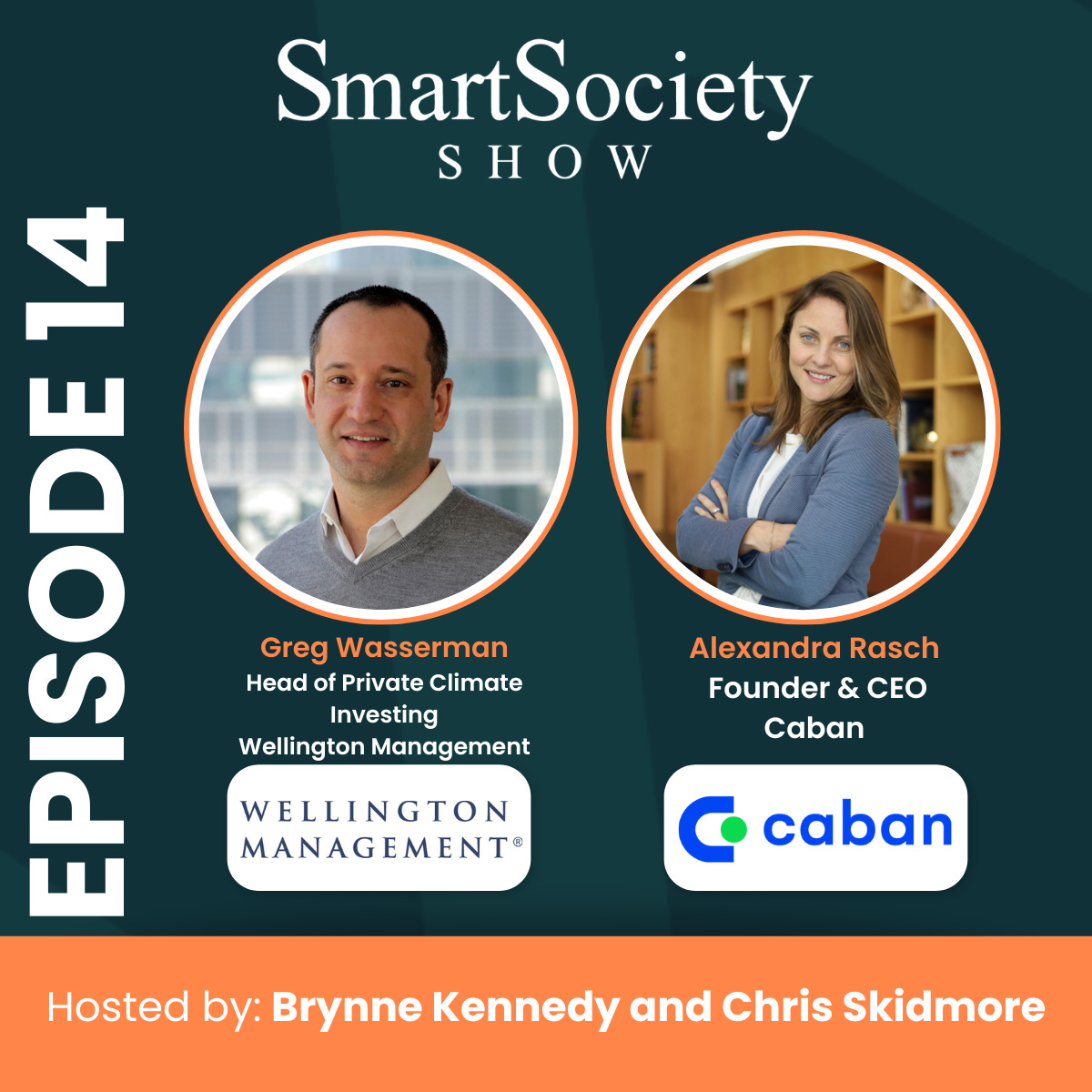Energy & climate on stage and Smart Society Show highlights
Hey there, and welcome to the newest edition of Smart Society Scoop!
Where we’ve been
🇬🇧 Brynne took the stage at S&P Global Sustainable1 Summit in London to unpack the intersection of AI and energy. She spotlighted use cases where AI is enhancing asset performance, predicting faults, balancing storage, integrating distributed power, and enabling smarter trading. Brynne also addressed the fragmented nature of the energy transition, the enduring role of oil and gas, and the importance of scaling emerging technologies globally, highlighting the need for hybrid growth platforms that blend venture expertise with industrial partnerships, government engagement, and capital orchestration.
🇨🇭 She joined a panel in Lausanne at HackSummit, co-hosted by Innovaud, where she explored the contrasts between US, European, and Swiss innovation ecosystems. The discussion highlighted the persistent funding gap at the growth stage, despite Switzerland’s world-class deep tech and energy startups, international visibility remains a challenge.
🇩🇪 She joined SuperReturn Berlin for a forward-looking panel on the future of power infrastructure and what it will take to invest at scale in an increasingly complex energy landscape.
🇺🇸 Chris has been busy on his side as well. He was recently appointed as a Climate Action Fellow at The Salata Institute for Climate and Sustainability at Harvard University.
🇬🇧 During London Climate Action Week, he spoke at 12 high-level events, including chairing a major discussion with COP29 President Mukhtar Babayev as part of the Global Clean Power Taskforce for the Climate Action Coalition which he co-chairs.
Episode 13: AI's Energy Demands and Climate Investing with Hampus Jakobsson (GP, Pale Blue Dot) and Blaine Mathieu (CEO, Pratexo)
🎙 In Episode 13 of The Smart Society Show, Brynne Kennedy and Chris Skidmore explore how AI, grid flexibility, and early-stage investing are reshaping the energy transition. They’re joined by two pioneering guests: Hampus Jakobsson, General Partner at Pale Blue Dot, and Blaine Mathieu, CEO of edge computing startup Pratexo. ⚡🌍
📰 What’s News: Reporting live from CERAWeek and the Baku Global Forum, Brynne and Chris unpack a new era of “energy realism.” They explore how data center growth, AI demand, and geopolitical shifts are accelerating both fossil and renewable investments and how companies like Google, Chevron, and National Grid are responding with pragmatic, dual-track energy strategies. 📈🔌
🔁 Chasing Net-Zero: Hampus Jakobsson reveals how Pale Blue Dot invests in startups that align climate action with customer value without relying on behavior change or regulation. From optimizing steel production to reducing wildfire risk, he shares why the best climate startups can win even when customers don’t believe in climate change. ♻️📉
🦄 Chasing Unicorns: Blaine Mathieu, CEO of Pratexo, explains how edge computing is enabling decentralized energy systems to operate at the speed of software. Backed by ABB and Smart Society Ventures, Pratexo is helping industrials manage complex power systems in real time, making them faster, cheaper, and more resilient. 🔋🤖
🎧 Tune in now to hear the full episode.
Episode 14: Tariffs, Climate Investing Trends, and Distributed Energy with Greg Wasserman (Head of Private Climate Investing, Wellington Management) and Alexandra Rasch (Founder & CEO, Caban)
🎙 In Episode 14 of The Smart Society Show, Brynne Kennedy and Chris Skidmore unpack the growing convergence of energy, AI, and geopolitics with a special focus on tariffs, trade wars, and grid modernization. They're joined by two standout guests: Greg Wasserman, Head of Private Climate Investing at Wellington Management, and Alexandra Rasch, Founder & CEO of distributed energy innovator Caban Energy. ⚡🌐
📰 What’s News: The hosts break down the ripple effects of US tariffs on clean tech, rare minerals, and EVs and what that means for global energy security. They also dive into a major new IEA report on AI’s energy impact, which projects that electricity demand from AI could double by 2030, equivalent to Japan’s total power use. 🧠🔋
🔁 Chasing Net-Zero: Greg Wasserman, a climate investing veteran, shares how Wellington is deploying capital into late-stage climate tech companies solving real pain points. From weather forecasting and grid resilience to autonomous systems and supply chain optimization, Greg reveals why adaptation, automation, and quantifiable impact are the next frontiers. 🌎📈
🦄 Chasing Unicorns: Alexandra Rasch, Founder and CEO of Caban Energy, a Smart Society Ventures portfolio company, outlines how Caban is delivering distributed power to telecoms, data centers, and satellites across 14 countries. With operations spanning from Latin America to California, Caban is using energy storage, long-term contracts, and VPP software to reshape energy access and resilience in critical infrastructure. 🔋🌍
🎧 Tune in now to listen to the full episode.
What we’re reading
🇨🇭 How Switzerland Transformed Itself Into A Deep Tech Global Leader
🇺🇸 Data center demand to push US power use to record highs in 2025, '26, EIA says






